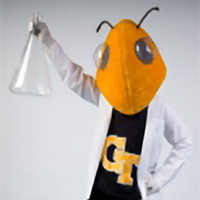
Contact Information

About
My work is at the intersection of human judgment and decision-making, probabilistic reasoning, belief revision, and statistical inference. The study of how people make decisions under uncertainty is the study of how people make judgments with incomplete information. Put another way, it’s how we function as intuitive statisticians in our day to day lives. As such, I believe the study of judgment and decision-making is inseparable from the study of statistical inference, and they are in fact two sides of the same coin. Becoming better parsers and communicators of statistical information is crucial for becoming better decision-makers.
More concretely, I have two primary active research tracks. The first involves understanding what makes a person a good forecaster. I am currently partnered with the Forecasting Research Institute on several projects—most notably to develop a test of forecasting proficiency. The second involves understanding how people take advice or revise their judgments and beliefs when presented with new information. There are many subtle but important nuances to the psychological process of belief revision that depend not only on the content domain, but the format of the belief report or elicitation and situational context as well.
Contact Information

About
To better facilitate human-autonomy teaming (HAT) in the future hybrid society, my research entwines communication, cooperation, and coevolution between humans and artificial intelligence (AI). Specifically, I model trust in human-AI real-time communications, social interactions, and long-term dynamics in safety-critical domains. My research findings further the understanding of trust in HAT and provide broader design implications for conversational robots, safety policy for autonomous vehicles, and theoretical frameworks for safe-critical sociotechnical systems.
For more information, please refer to my personal website.
Contact Information

About
Dr. Tiffiny Hughes-Troutman is a licensed psychologist who serves as Professor of the Practice and Program Director of the Minor in Mental Health and Well-Being in the School of Psychology at Georgia Tech. She received her Ph.D. in Counseling Psychology from the University of Illinois at Urbana-Champaign. Dr. Hughes-Troutman has over 20 years of experience in higher education as a clinician, educator, training consultant, and lecturer on student and staff health and well-being. Committed to her scientist-practitioner training, Dr. Hughes-Troutman is dedicated to utilizing evidence-based and relevant strategies and tools that cultivate curiosity, engage meaningfully, and challenge appropriately. Embracing the philosophy that college campuses should build communities that catalyze student success, she strives to create psychologically safe learning environments that engage the best outcomes for all students. Dr. Hughes-Troutman is a member of the American Psychological Association, the American College Health Association, NASPA Student Affairs Professionals, and the Georgia Psychological Association. She is a Fellow of the Georgia Psychological Association.
Contact Information

Contact Information

Contact Information

Contact Information

About
Sashank Varma is a cognitive scientist who uses human experimentation and computational modeling to investigate those complex forms of cognition that are uniquely human and indeed make us human.
His primary line of empirical research is in mathematical and computational thinking. He and his students are investigating, for example, the cognitive mechanisms by which people understand abstract mathematical concepts (e.g., in geometry and topology) and reason about computationally ‘hard’ problems (e.g., the traveling salesperson problem).
His research program in artificial intelligence focuses on the cognitive alignment between humans and machine learning models. His group is investigating whether large language models, vision models, and multimodal models ‘understand’ mathematics, language, and concepts as humans do, and if they ‘reason’ similarly as well. His most recent work is taking on the question of developmental alignment – whether the improving performance of machine learning models over training parallels the progression of children’s thinking over development.
Contact Information

About
In an era in which many people can live well into their eighties or nineties, articulating pathways to a quality life becomes more critical than ever before. At the broadest sense, I am interested in identifying the affective, cognitive, and sociocultural processes that shape long and meaningful lives. My research addresses three broad questions: (1) What factors contribute to meaningful lives? (2) How do individual life experiences, particularly those that are personally significant and challenging, shape the pursuit of meaning across the adult life span in diverse contexts? (3) What emotional and cognitive gains and losses might be involved in the process of striving for meaningfulness? I address these questions from a functional approach to autobiographical memory and consider how developmental changes in motivation across the adult life span may be at play.
Contact Information

About
New Student Recruitment Information
Dr. Wiese will not be recruiting students for Fall 2026.
My overarching research mission is to improve human flourishing by conducting meaningful and transformational research. While my primary training is in Industrial-Organizational Psychology, my research approach is not confined to studying the human condition at work. I take an interdisciplinary, person-centric, future-looking approach to examining the human experience across various contexts. Specifically, my work is organized around two central themes: Well-Being and Teams. For more information about my current research projects, please visit The Foundation Lab page


